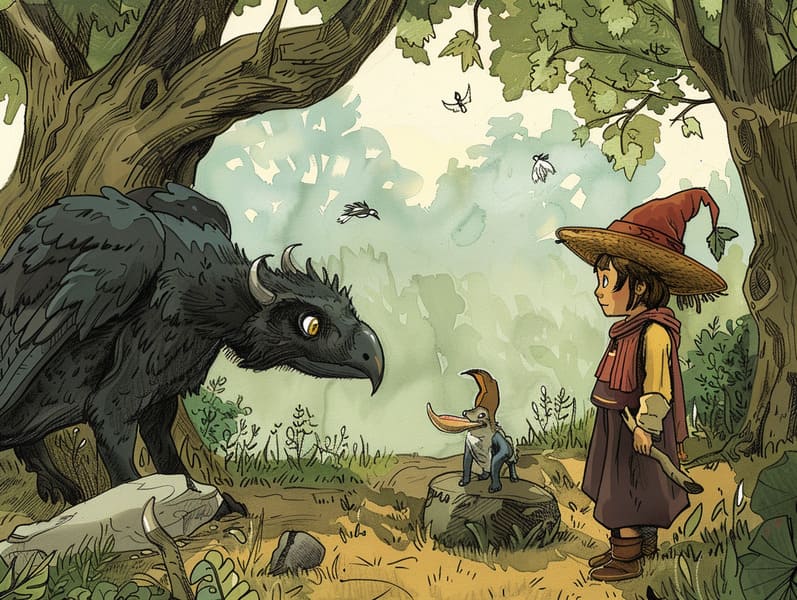
Nighttime is a precious time for caregivers and children. It’s a chance to calm down, huddle together, and delight in the wonder of nighttime tales.
For decades, children's bedtime stories have been a esteemed ritual, offering more than just a way to nod off. They provide an opportunity for affection, education, and fostering inventiveness.
Bedtime Stories: Their Importance
Bedtime stories for kids go beyond a way to close the day. They play a key role in a child’s evolution and in building the parent-child connection. Here’s why they matter:
1. Shared Moments: Telling bedtime tales creates a special bonding moment between moms and dads with their little ones. It’s a moment of attachment that helps children feel important and comforted.
2. Vocabulary Building: Experiencing stories helps children develop their language skills. They grasp new expressions, understand syntax, and improve their comprehension and interpretation abilities.
3. Fantasy and Imagination: Narratives for little ones lead them to fantastic worlds, promoting inventiveness. They envision characters, settings, and adventures, which ignites their fantasy.
4. Feeling Recognition: Stories for little ones often include characters facing obstacles and feelings. These scripts help kids handle and work through their own reactions, enhancing emotional intelligence.
5. Thinking Skills: Being read a tale helps children develop mindfulness, recall, and problem-solving skills. They enhance to follow stories, remember aspects, and anticipate results.
Incorporating Stories into Bedtime
Establishing a bedtime habit that features reading narratives is manageable and fulfilling. Here’s how to turn it into a prized part of your evening practice:
1. Select a Comfortable Location: Identify a comfortable place where you and your child can huddle together without intrusions. A comfy bed or a comfortable reading nook works wonderfully.
2. Set a Consistent Time: Establish a consistent time each night for tales. Routine helps children be prepared and makes the habit simpler to continue.
3. Choose Age-Fitting Stories: Select tales that match your child’s age. Preschoolers might be drawn to illustrated books with clear stories, while bigger children may like complex plots with more involved stories.
4. Get Involved with the Story: Bring the tale feel vivid by using different character voices, adding noises, and having your child to take part. Ask points about the story to maintain their interest.
5. Create a Soothing Environment: Adjust the lights, use gentle voices, and create a tranquil environment to help your child wind down.
Where to Find Great Bedtime Stories
There are many sources where you can find excellent bedtime stories for children. Here are some suggestions to consider:
1. Books for Kids: Try your community library or bookstore to find a great selection of bedtime stories for kids. Browsing the books together can be a wonderful activity that also enables children to decide on stories that appeal to them.
2. Web Resources: There are many places online that offer free bedtime stories. Sites like children's story websites provide a variety of short stories for kids that you can read online. These sites are great for finding stories for children to read new and different stories without expense.
3. Audiobooks and Apps: For nights when you’re too exhausted to read, consider audiobooks or storytelling apps. These can provide a gentle reading to read your child a story, ensuring they still get their bedtime story fix. Apps often offer interactive aspects that can engage children further.
4. Custom Stories: Compose your own stories inspired by your child’s interests. Personalized stories can be remarkably engaging and meaningful. You can involve your child in the crafting process, making them a part of the adventure.
Why Short Stories Are Effective
Quick stories for bedtime are highly helpful for bedtime. They provide all the plusses of longer stories but are more succinct, making them perfect for getting ready for bed before sleep. Here’s why short stories are a good choice:
1. Effortless to Follow: Brief tales are direct and simple for kids to grasp, even after a long day. They can quickly grasp the theme and enjoy the story without getting bored.
2. Fast Engagement: Quick narratives promptly engage children, seizing their interest and interest. This makes them great for keeping bedtime habits manageable yet enjoyable.
3. Wide Range: Concise narratives create for variety in your bedtime reading. You can choose a different story each night, keeping the practice new and exciting for your child.
4. Saves Time: For busy parents, brief tales are a quick way to make sure children still get their nightly dose of storytelling. They fit well into a busy schedule while still offering the full advantages of a bedtime story.
The Effectiveness of "Read Me a Story"
The simple phrase, “Can you read to me?” can bring a world of magic for children. Responding to this request not only addresses a child’s request for attention and engagement but also develops lasting recollections. Here’s why it’s magical:
1. Connection: Reading to your child fosters a deep emotional connection. It’s a time for proximity, sharing, and bonding.
2. Legacy: Starting a bedtime story habit creates a cherished tradition that children look forward to every night. It’s a habit that can be handed down through generations.
3. Joint Growth: As you narrate, you’ll experience your child’s development and progress. Their reactions, reactions, and understanding of the stories advance, offering insights into their developing minds.
4. Secure Place: Bedtime stories provide a safe space for children to deal with emotions, face fears, and find comfort in the trusted presence of a parent.
In Summary
Stories for kids at bedtime are a valuable tool for supporting a child’s advancement and establishing unforgettable times of connection.